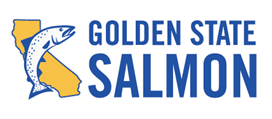
Salmon and flooding

by John McManus
3-10-2023
Website
If you’re covering the forecasted or possible flooding in California’s Central Valley consider the following statement from John McManus, president of the Golden State Salmon Association.
“Flood threat is rising at the same time fishermen and women, the mostly coastal towns and ports where they live, and related salmon industry businesses, are learning there won’t be a 2023 salmon season in California and much of Oregon because there aren’t enough salmon to allow one. Working fishing families face no income in 2023 and many don’t know how they’ll pay the bills.
Three weeks ago, Gavin Newsom told his water managers to hoard water by reducing reservoir releases needed to protect baby salmon during this vulnerable time of year. Newsom’s stated rationale was to keep as much water as possible in reservoirs while allowing increased water exports to ag interests in the San Joaquin Valley. Some of the hoarded water may now threaten Californians with flooding. The state’s Oroville Dam announced Thursday it is releasing water to provide flood control protection for downstream communities.
GSSA objected to Newsom’s order because of the grave threat the reduced Delta outflow posed to baby salmon trying to make it from the Central Valley to the ocean. These salmon are desperately needed to rebuild California’ s salmon stocks.
Had the governor simply stuck with maintaining required Delta outflow, California’s struggling salmon runs would be healthier and coastal communities, now staring at a drastic loss of income due to the pending salmon shutdown, would have more hope for the future. Oroville Dam and other Central Valley reservoirs that are releasing water to make room for the heavy rain and snow runoff flowing into them might not be as concerned with reducing flood threats.
Hopefully the governor will learn a lesson that controlling reservoirs and flood risk, and salmon protections can work together.
Newsom desperately needs to get some people in his circle that appreciate and understand the need to carefully manage California’s water resources in ways that also protect salmon jobs and communities while reducing flood risks. He also needs to stop promoting water policies put in place by the Trump administration that are destroying the people who sustainably produce food from California’s natural resources. Since Newsom became governor, salmon have died while ultra-thirsty almond orchards have increased in California by over 300,000 acres and now thousands in the salmon industry are looking at no work and no income in 2023.”
GGSA president John McManus is a long-time salmon fisherman and salmon advocate. He comes from a varied background that includes ten years of commercial salmon fishing in southeast Alaska, 15 years producing news for CNN and more recently, 11 years doing publicity and organizing for the public interest environmental law firm Earthjustice. Work at Earthjustice included organizing and publicity supporting restored salmon fisheries in the Columbia, Klamath and Sacramento rivers. A San Francisco native, Muni Pier and Lake Merced were the places where he first learned to tie a fishing line, bait a hook, and cast. He’s a long time member of the Coastside Fishing Club and keeps a boat part of the year in Half Moon Bay. From the 1970s on he spent a lot of time in the north coast salmon communities of Bodega Bay, Pt. Arena, Fort Bragg and Eureka. As salmon runs declined in the 1990’s, he got a front row seat to the demise of these communities, something that fuels his advocacy for salmon and salmon communities to this day. The Golden Gate Salmon Association is a coalition of salmon advocates that includes commercial and recreational salmon fisherman, businesses, restaurants, a native tribe, environmentalists, elected officials, families and communities that rely on salmon. GGSA’s mission is to restore California salmon for their economic, recreational, commercial, environmental, cultural and health values. Currently, California’s salmon industry is valued at $1.4 billion in economic activity annually in a regular season and about half that much in economic activity and jobs again in Oregon. The industry employs tens of thousands of people from Santa Barbara to northern Oregon. This is a huge economic bloc made up of commercial fishermen, recreational fishermen (fresh and salt water), fish processors, marinas, coastal communities, equipment manufacturers, the hotel and food industry, tribes, and the salmon fishing industry at large.
Website Hosting and Design provided by TECK.net